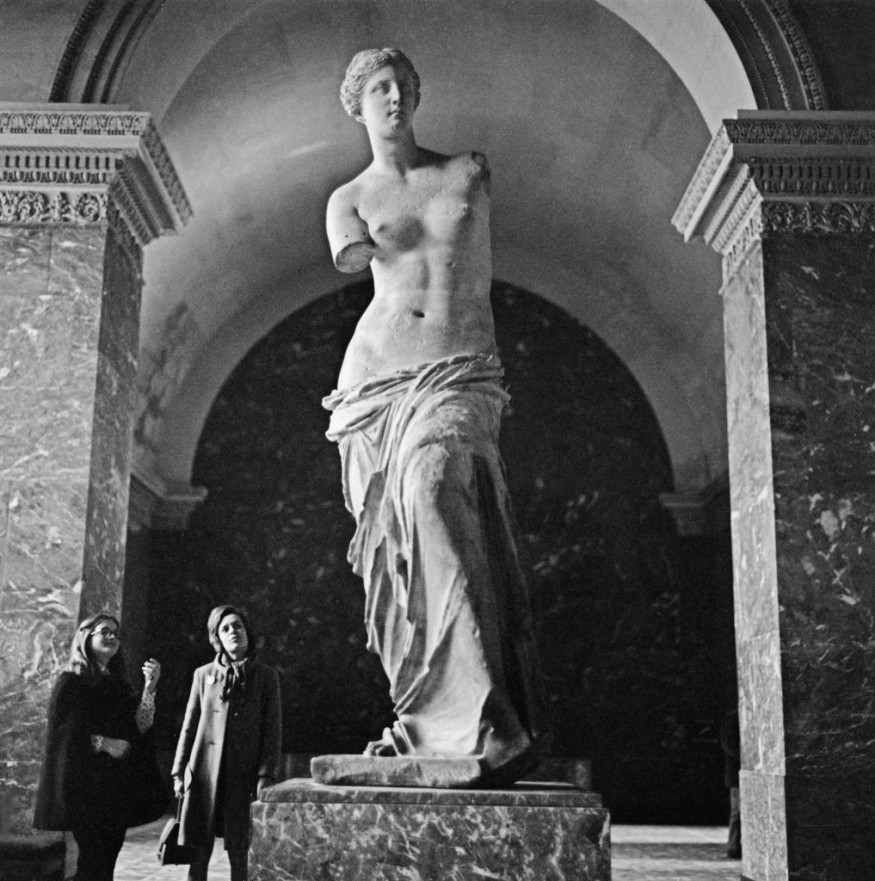An Aphrodite priestess was unearthed by Russian archaeologists at a 2,100-year-old burial site in an ancient Greek city in what is now modern-day Russia. The site contains a silver medallion showing the Greek goddess Aphrodite in the grave of a young woman, which was potentially a holy servant of the Olympian deity of beauty and love in the Greek mythology.
Being one of the many discoveries unearthed in recent months, the site can be found east of the Crimean Peninsula between the Sea of Azov and the Black Sea. The area where the excavated Aphrodite priestess was found shows that not only the worshippers of the Hellenism religion was confined in Greece but it is also existing in its neighboring territories at that time.
Aphrodite Priestess

The ancient grave is located in the city of Phanagoria, which was the largest ancient Greek city, situated in what is now the Taman Peninsula in the federal subject of Krasnodar Krai, Russia. The priestess was buried in the northeastern coast of the Black Sea. The medallion holds clues not only to the identity of the woman but also to the religious practices of that time, according to the Greek Reporter.
However, it is still not reportedly clear if the ancient remains belong to a priestess but her worn accessories such as rings, silver earrings, and other grave goods suggests otherwise. The Greece-based news organization said researchers involved in the discovery consider the possibility that the buried woman was a priestess of Aphrodite.
On the other hand, archaeologist Nikolay Sudarev who helped with the Russian Academy of Science about the discovery said the woman buried with the medallion cannot be called a priestess, as cited by Live Science. Still, the manner in which the burial was done and the possessions present in her grave points to the evidence that she is connected with the cult of Aphrodite.
Also Read: Why We Have 7 Days in a Week
Who is Aphrodite?
Aphrodite was initially perceived by ancient Greeks as one of the deities in Mount Olympus, the highest mountain in Greece and the seat of Zeus, along with other gods and goddesses. Prevailing literature shows that Olympus is a realm of the divine and a place where mortals could physically reach.
Not only is Aphrodite the goddess of beauty and love but is also regarded as the patron fertility and sexual pleasure, as well as the goddess of the sea and of seafaring. On Earth, stories about Aphrodite showed she was honored in the Greek city of Sparta, Cyprus, Thebes, and other locations.
Based on the Greek mythological narrative about the Olympian Goddess, Homer and Hesiod tells different accounts about the origin of Aphrodite. For the famous Iliad and the Odyssey author Homer, the deity was the daughter of Zeus and the Titaness Diona. Yet, Hesion said more famous myth that Aphrodite was born after Uranus' genitals fell into the sea when he was sterilized by his Titan son named Cronus, according to GreekMythology.com.
© 2025 NatureWorldNews.com All rights reserved. Do not reproduce without permission.





